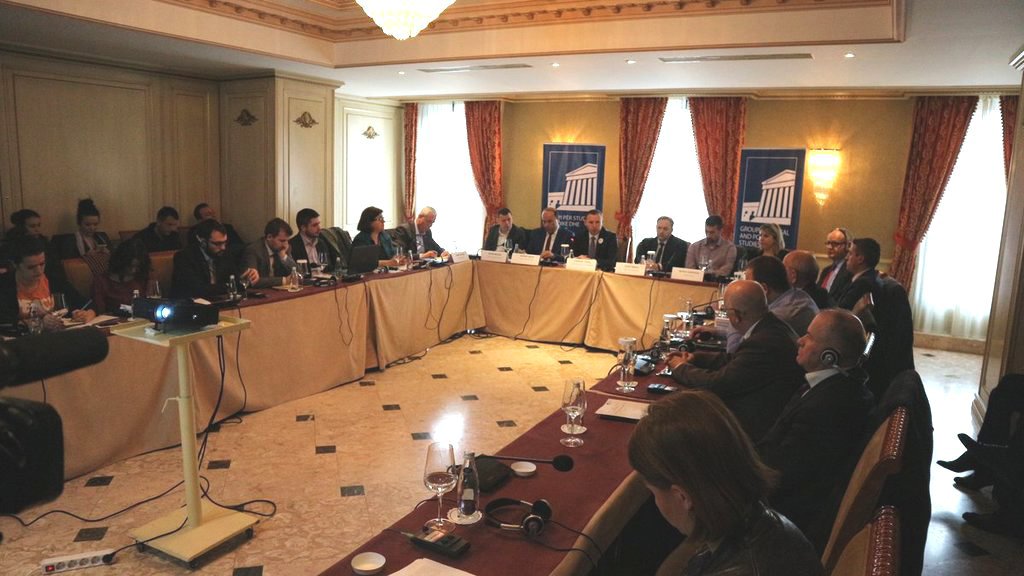On 30 August 2017, Group for Legal and Political Studies (GLPS) organized a Roundtable Discussion on the topic: “Challenges of the Justice System: Independence, Impartiality and Efficiency of the Justice System in Kosovo”, held in Prishtina. The aim of this event was to discuss the performance and the efficiency of the judiciary and prosecution in Kosovo, with a specific focus on the citizens’ perception. Moreover, during the discussion, participants had the chance to identify and analyze the challenges and difficulties of the work of judges and prosecutors. At the beginning of the discussion, GLPS published the Third Rule of Law Performance Index in Kosovo (RoLPIK), which serves as a tool to demonstrate the trend of performance and efficiency of judiciary and prosecution. In addition, this Index assesses the perceived level of citizens’ satisfaction on the performance of rule of law institutions in Kosovo, through a survey conducted during June 2017. Citizens of Republic of Kosovo perceive the justice system as being highly influenced by people with political influence. More concretely, 74.4% of respondents consider that politically influential people are less likely to get the proper punishment by the relevant legal structures. If we compare this percentage to the survey conducted in June 2016 (61.1%) or December 2016 (58.2%), we see an increase of negative perception of citizens towards these institutions. It is very concerning the fact that about 3/4 of respondents think that people with political support are powerful and are not punished by the law, making citizens believe that they are not equal in front of justice. In addition, bribery continues to remain one of the most concerning issues in the justice system. The data of this third survey show that 55.8% of respondents think that employees in rule of law institutions directly seek or receive bribes. We should mention the fact that this percentage is higher for 12.4 points of percentage compared to the survey conducted in December 2016, which shows an increase of belief that judges/prosecutors/police officers are inclined to receive bribes. The report can be found in the project website rolpik.org. This project is financed by the project/program Democratic Society Promotion (DSP) – financed by the Swiss Cooperation Office in Kosovo (SCO-K) and managed by the Kosovo Civil Society Foundation (KCSF).
Panelist:
Mr. Hilmi Jashari – Ombudsperson, Kosovo;
Ms. Makifete Saliuka – Member, Kosovo Judicial Council;
Mr. Imer Beka – Chief Prosecutor, Basic Prosecution in Prishtina;
Mr. Betim Musliu – Kosovo Law Institute;
Mr. Arton Demhasaj – Çohu;
Ms. Albana Merja – Group for Legal and Political Studies.
Venue: Swiss Diamond Hotel, Prishtina
Share article
Latest Publications
April 8, 2024
Policy Analysis
Reflecting on the Third Year of Kurti II: Setbacks and Achievements in Rule of Law, Public Administr ...
March 22, 2024
Policy Analysis
Lost, “in the Twilight Zone” Rebutting the Court’s Blunder
March 7, 2024
Policy Analysis
Unfair Treatment? The EU’s facilitator role over the Kosovar or Serbian contempt of the Dialogue
Related Espresso Insights
March 4, 2024
Espresso.Insights
Passport Hangover: What’s next after Spain’s Kosovo breakthrough?

January 16, 2023
Espresso.Insights
Recognized but not supported: Hungary's stance on Kosovo's EU bid





